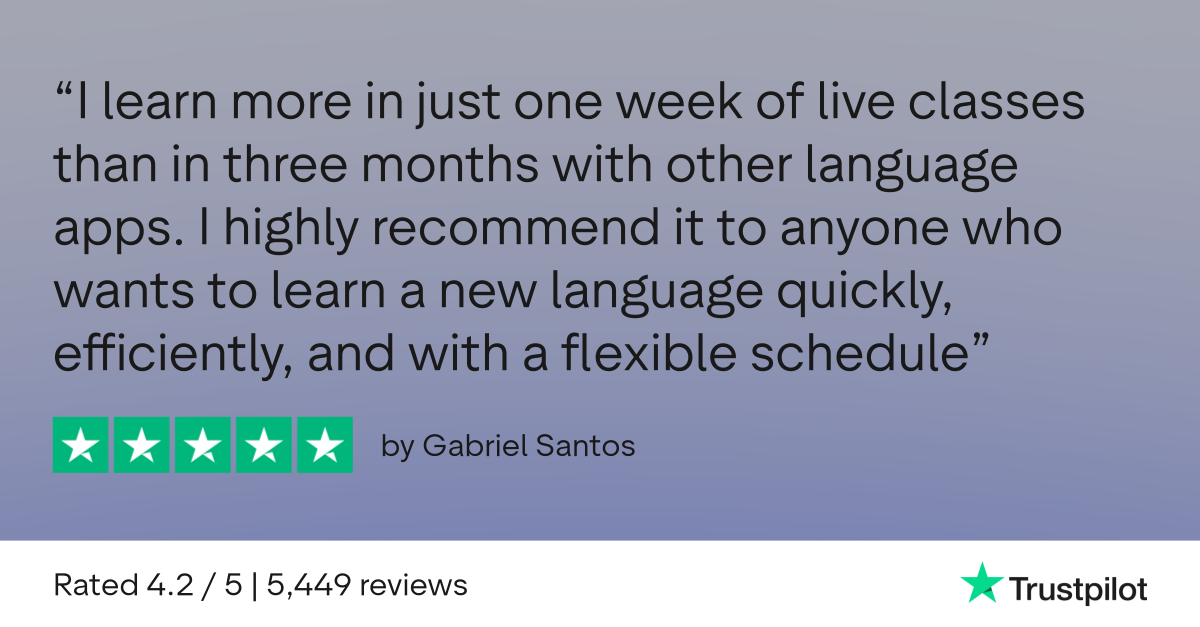Prepositions of time in English: ‘In’, ‘on’, ‘at’, ‘for’, ‘since’ and more
Prepositions of time show when something happens.

The most common ones are in, on, at, for, and since. Each follows simple patterns that help you describe time, dates, and durations in English. At times English learners find them confusing because the rules are sometimes inconsistent and often different in other languages.
In this guide, you’ll learn how to use each preposition of time with clear rules, examples and short practice quizzes. You’ll also find quick-reference tables and notes on common mistakes.
- What are prepositions of time?
- The core trio — ‘In’, ‘on’, ‘at’
- Functional prepositions beyond ‘in’, ‘on’, and ‘at’
- British vs. American differences
- When to omit prepositions
- FAQs
What are prepositions of time?
Prepositions of time tell us when something happens. They link an action or event to a specific moment or time period.
Why learners struggle with prepositions of time
Many learners find prepositions of time tricky. One reason is that different languages don’t use the same prepositions, so direct translation isn’t possible. Another is that students tend to overgeneralise a learned rule, especially for ‘in’, ‘on’, and ‘at’.
If you learn that ‘in’ is used with months, then this is logical:
- I was born in October 1st. ⛌
But it’s not correct. We use ‘on’ with dates, so this is right:
- I was born on October 1st. ✔

Learn English with Lingoda
How it works

The core trio – ‘In’, ‘on’, ‘at’
The three most common prepositions of time in English are in, on, and at. Each one refers to a different level of time precision:
- in = longer periods (months, years, seasons)
- on = specific days and dates
- at = exact times or set moments
When to use “in”
Use ‘in’ for months, years, decades, centuries, seasons and parts of the day.
- I was born in March.
- I love going skiing in winter.
- I only drink coffee in the morning.
We don’t use a preposition before ‘next’, ‘last’ or ‘every’.
- We’re going to Greece next year.
When to use “on”
Use ‘on’ for days, dates, and special days.
- I don’t work on Fridays.
- The school year starts on September 1.
- We exchange gifts on Christmas Day.
In American English, people tend to say ‘on the weekend’. In British English, ‘at the weekend’ is more common.
We don’t use ‘on’ before the words ‘today’, ‘tomorrow’, ‘yesterday’, ‘next’, ‘last’, ‘this’ and ‘every’.
- What are you doing today?
- I’m going on vacation this Thursday.
When to use “at”
Use ‘at’ with times, festivals and celebrations.
- The exam begins at 8 am.
- People often have fireworks at New Year's.
We also use ‘at’ in these expressions:
- at night
- at the moment
- at the weekend (in British English)
Quiz
Complete the gaps with ‘in’, ‘on’, ‘at’ or no preposition.
- Stores close early ______ Christmas Eve.
- Man first went to the Moon ______ the 1960s.
- Are you free this ______ afternoon?
- Halloween is ______ October 31.
- I’m having difficulty sleeping ______ the moment.
Answers: 1. on, 2. in, 3. -, 4. on, 5. at
Quick reference table – In / on / at
| Preposition | Usage | Examples |
| in | months, years, long time periods, seasons, parts of day | We lived in New York in the ‘80s. |
| on | days, dates, specific/special dates | See you on Monday. I start my job on January 22. We eat turkey on Christmas Day. |
| at | clock times, special celebrations, night | Come at 7 o’clock. What are you doing at Christmas? I don’t like driving at night. |
Functional prepositions beyond ‘in’, ‘on’, and ‘at’
Prepositions such as for, since, until, by, before, after, during, within, and throughout add more detail about time. Each has a specific function: some show duration, others show limits, order, or time frames.
‘For’ vs. ‘since’
Use ‘for’ to show duration. Use ‘since’ to show a starting point.
Many learners use ‘since’ too often: We’ve worked there since five years. ╳
- We’ve worked there for five years. (duration)
- We haven’t spoken to her since September. (starting point)
You’ll often see these prepositions used with the present perfect tense.
Complete the gaps with ‘for’ or ‘since’:
- I’ve wanted a dog ______ I was a child.
- Helen lived in Germany ______ almost a year.
- We haven’t eaten ______ breakfast time.
Answers: 1. since, 2. for, 3. since
‘Until’, ‘till’ and ‘to’
‘Until’ and ‘till’ mean up to a point in time.
- We’ll wait until 5 pm.
- Can you stay till the end of the concert?
We can also use ‘to’ with the same meaning as ‘until’ when talking about a point in time.
- It’s three days to Christmas.
‘Until’ is the most common form. ‘Till’ and ‘’til’ are used in speech or informal writing.
By (deadlines)
‘By’ means no later than. We often use it to talk about deadlines.
- Finish that report by Friday.
This can mean before Friday or on Friday at the latest.
Many people mix up ‘by’ and ‘until’.
by midnight = no later than midnight
until midnight = continuing up to midnight
- You have to submit the homework by midnight.
- I’ll be working until midnight.
’Before’ and ‘after’
‘Before’ means earlier than a time or event. ‘After’ means later than a time or event.
- Please arrive before the film starts.
- If you arrive after the film starts, you can’t come in.
‘During’, ‘within’ and ‘throughout’
| Preposition | Meaning | Example |
| during | all through a period of time at any point during a period of time | Flight tickets are expensive during the summer. (all through summer) I heard an alarm during the night. (at some point in the night, not all night) |
| within | inside a period of time | The package will arrive within the next three days. |
| throughout | all through a period of time | They talked throughout the film. It was so annoying! |
Combined forms (‘From…to’/’until’)
We use ‘from… to’ when we describe the start and end of a period.
- I work from Monday to Friday.
- We’ll be available to answer questions from 12 to 1.
We can also use ‘from… until’ in the same way.
- The party lasted from 8 until midnight.
British vs. American differences
Prepositions are mostly used in the same way in British and American English, but there are some differences.
| British English | American English |
| at the weekend I go to the gym at the weekend. | on the weekend I go to the gym on the weekend. |
| negative verb + for + long time period I haven’t seen him for years. | negative verb + in + long time period I haven’t seen him in years. |
| to I teach Monday to Friday. | through I teach Monday through Friday. |
When to omit prepositions
We don’t use a preposition of time before words like ‘today’, ‘tomorrow’, ‘yesterday’, ‘next’, ‘last’ and ‘every’.
- What did you do yesterday?
- Do you want to come for dinner next Sunday?
- The event takes place every month.
Prepositions are also omitted in phrases like these:
- the day after tomorrow → We’re flying the day after tomorrow.
- the week before last → I went to Spain the week before last.
- the weekend after next → We’re having a party the weekend after next.
Many English learners try to add ‘on’ or another preposition, for example, ‘on the day after tomorrow’, but native speakers don’t use one.
When do we use since vs. for?
Use ‘since’ to talk about a starting point and ‘for’ to talk about duration.
Do we say “in tomorrow” or “tomorrow” without a preposition?
We don’t use a preposition before ‘tomorrow’: See you tomorrow!
Are there differences in British vs American usage of time prepositions?
In British English, ‘at the weekend’ is more common. In American English, people usually say ‘on the weekend’.
Prepositions of time – Key rules to remember
Prepositions of time are small but incredibly useful words that can make your English more precise. Here are the key points to remember:
- Use ‘in’ for months, years and parts of the day
- Use ‘on’ for days, dates and special occasions
- Use ‘at’ for exact times, ‘night’ and fixed expressions
Remember that ‘for’ shows a duration, while ‘since’ marks a starting point. And finally, don’t use a preposition before words like ‘today’, ‘tomorrow’, ‘next’, ‘last’, ‘this’ or ‘every’. Once you’ve mastered prepositions of time, you can integrate more complex time expressions into your English.
The more you practise using these in real situations, the easier they become. Lingoda’s online classes are a great way to make these grammar points part of your everyday English. Native-speaking teachers will help you use these prepositions naturally and fluently.

Learn English with Lingoda
How it works

















